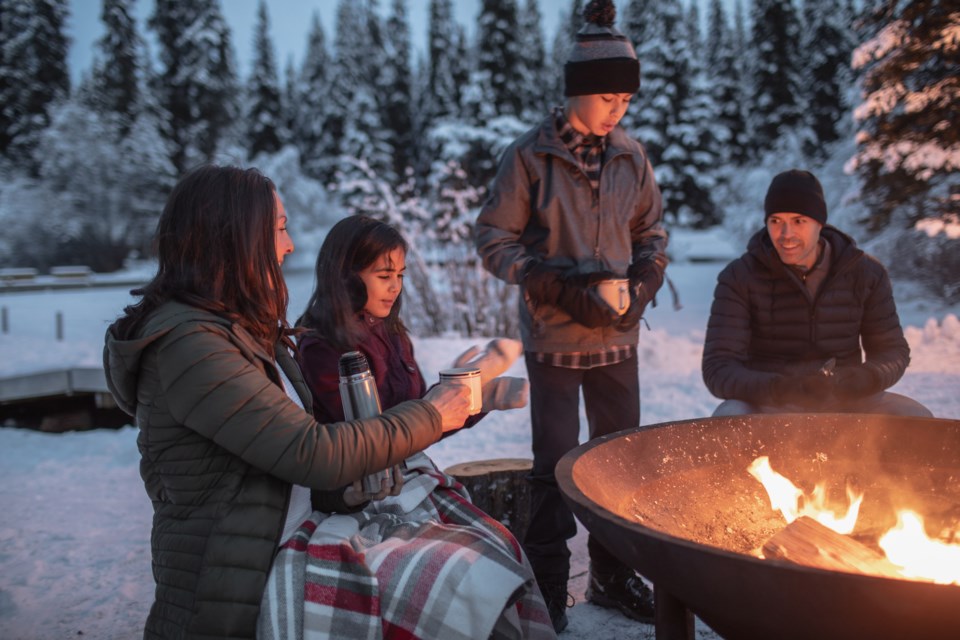Dear Readers: There’s a change in the atmosphere, and it’s showing up more and more in my inbox. Recently, and more often, some of the questions and comments that are arriving from letter-writers, have a positive tone!
Yes, there’s still an ongoing pandemic to be taken seriously, and yet some of you have been finding the good that exists in a number of your specific relationships.
Meanwhile, other people are writing about increasing awareness of the need to keep helping those people who need some level of support.
Still others are just taking pleasure in a hopeful awareness that we can get through this still-complex challenge to our mental, physical and social health, by spreading more confidence while still trying to stay safe.
Feedback on some of the positive signs:
Almost one month ago, on Jan. 17, Toronto started receiving the beginnings of an unusual total snowfall amount forecast to be 40-60 centimetres.
As one reader enthusiastically reported, “It is amazing what a major snow storm can accomplish!
“While Toronto got bombarded with snow and many cars got stuck, the news was also filled with people just naturally helping out their neighbours. One group even helped dig out a transit bus.
“Everyone interviewed by reporters for various media commented enthusiastically on their positive attitude regarding helping people out. I’m sure the exercise and fresh air also helped.”
They added, “There’s been so much negativity during COVID. I find that providing a little positive element brings positive results, even if only a smile and a thank you.”
Ellie: Here’s another small but touching example of someone who recognizes another person’s need and asked me for some added help for her:
“A friend of mine has suffered grievous losses. Her son, her husband and her mother are all not in good health. Plus, she is an only child.
I did not make a note of the online grief counsellors you’ve mentioned. Could you please send me some contacts for her? I will pass them on.”
Ellie: I’m happy to respond by giving you online information to aid your search for grief therapy contacts. (I don’t promote specific counsellors by name, only their affiliation.
But the following will help you and your friend learn which websites to scan, where to email questions, and make calls for direct information:
Most faiths provide grief counselling, often delivered through a pastoral leader.
But if religion isn’t a factor, seek general counselling/therapy websites and look for practitioners mentioning their advanced training such as a Master’s degree in Social Work, or a graduate psychotherapy degree, etc.
Follow up with a phone call to ask specific questions on behalf of your friend’s immediate needs.
Feedback regarding the woman whose friends have children, and who now seem too busy for her (Jan 24):
Reader: “Even when this woman without children offers to organize get-togethers, or look after friends’ children to be helpful, they’re still too busy.
“The same thing happened to me when my good friend had a baby. We kept in touch sporadically for many years. Now that her child is in university and we’re both retired, we have reconnected and get together regularly.
“My advice to your reader is to not give up on your friends, but to keep in touch while also giving them space to handle their busy needs and responsibilities.”
Reader’s commentary regarding the couple “hurt” that people they met on travels years ago now barely respond to emails (Jan. 25):
“Look at the total picture.
“Example: I have a friend in the UK who I met in the 1980s. We worked for the same company in different countries.
“We’ve exchanged Christmas cards annually. I’ve “watched” his daughter grow through education, career, and marriage.
“In recent years, I’ve noticed that his “letter” has gotten shorter. I, too, have been finding it difficult to discuss something meaningful. We’re both increasingly sending just pleasantries.
“But, since I do get a card from him, I, too, continue sending.
“Life changes, especially apparent in the past two years. The fact that you get a response still sends an acknowledgement of friendship.
“You don’t know what particular struggles the other couple are experiencing. Your texts/cards could be something to which they may still look forward to receiving.”
Ellie’s tip of the day
When there’s a hint of better times becoming possible even during the pandemic, think positively and be helpful in whatever way you can.
Send relationship questions to [email protected].





